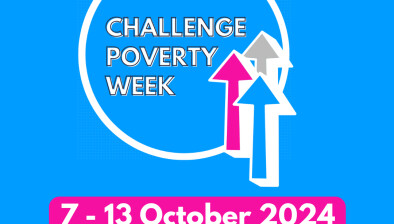Research reveals impact of Universal Credit cut on UK’s poorest families

New research from Action for Children paints a sobering picture of the impact of the £20-a-week cut to Universal Credit on some of the UK’s poorest families amidst the soaring cost of living crisis.
An analysis of the charity’s Crisis Fund that helps families in financial difficulty reveals that in the six months since the cut, more than half (54%) of the grants issued were for families on Universal Credit, suggesting the benefit is failing to meet basic living costs.
Highlighting the growing cost of living crisis, nearly four in ten (39%) grants in recent months have pointed to a rise in household spending, such as energy bills or food, as another top trigger for families’ financial struggles.
Accounting for more than half (55%) of the money spent since October, a major focus of the fund was to ensure families the charity supports have access to adequate levels of good quality, nutritious food.
Shockingly, the crisis fund applications showed that:
- nearly a third (31%) of families would have struggled to feed their children without the Crisis Fund – and this figure rose to over a third (37%) among families on Universal Credit.
- almost a quarter (24%) of families were having to choose between eating meals or paying bills – this rose to nearly three in ten (29%) for those on Universal Credit.
- nearly a fifth (19%) of families were cutting back on good portion sizes and more than one in ten (13%) were skipping meals to feed their children – again this was higher (16%) among families on Universal Credit.
A survey of its frontline staff also reveals that since the Universal Credit cut came into effect in October, nearly three quarters (73%) said it had impacted the children and families they supported, with well over half (57%) saying it had had a significant impact.
The extra crisis support staff had to provide to meet families’ needs saw:
- nearly half (45%) of those surveyed work longer or irregular hours
- more than two-fifths (41%) top up families’ energy meters,
- nearly one in five (17%) negotiate with energy companies to help families manage bills, and
- nearly one in ten (9%) even donate food to families from their own cupboards.
Applications to the fund also show the emotional cost to families struggling to cope with nearly half (49%) reporting adult or child stress, anxiety or mental health concerns, which rose to over half (54%) for those families on Universal Credit. Meanwhile, more than seven in ten of the staff surveyed said they had to provide families with extra emotional support (71%), and nearly two thirds (64%) arranged home visits or wellbeing checks.
The evidence from Action for Children’s frontline staff about the impact of deprivation on children was stark. One described how a boy they worked with had been off school with sore feet: ‘When we explored this further it turned out to be chilblains on the toes of both feet. I asked the child if he had got cold… [he] told me that the house is cold all the time as the heating is not on. The whole family were wearing coats indoors and the children were sharing beds at night to keep warm.’
Another described a parent who said that after their toddler is collected from nursery ‘…they go to bed with their tea just to keep warm. Mam explained that she knew that the little one was cold as she would shiver and tuck her hands into her top.’ One worker even observed a family ‘trying to heat the room by turning on the hob.’
Many workers describe parents skipping meals so their children had enough food or worrying about debts as they were unable to pay bills, while others were unable to afford new school uniforms for their children - or even drive to work because of the cost of the car.
Explaining why she thought families were struggling so much, one worker said: “Rising childcare … and other essential living costs have made it impossible for parents to work, especially single parents. Our funds are greatly appreciated by anyone who has received them … and [they have] eased a great financial burden, but only for a short period.”
Imran Hussain, director of policy and campaigns at Action for Children, said: “The worst pain and misery of the cost of living crisis is being felt by children in low income families, yet the Government is refusing to target help for these children or accept that it needs to rethink its huge cut to Universal Credit.
“The levels of severe and persistent financial hardship our services are seeing are among the worst they can remember and are robbing too many children of the bright futures they deserve. Whilst our Crisis Fund can help to relieve some of these pressures, it cannot address the underlying causes driving rising deprivation or offer a solution for families bearing the brunt of this deep-rooted cost of living crisis.
“The Government committed to using the tax and benefit system to reduce child poverty in its 2019 election manifesto. And yet, with inflation set to reach its highest level for four decades this year, the policy responses introduced by the government to date will not do nearly enough to support low-income families.
“We desperately need a cross-government plan to reduce and ultimately eradicate child poverty in the UK, but we can start today by guaranteeing benefits keep pace with the cost of living and target help to children in low income families through a rise in the child element of Universal Credit. There is so much more our government can do in these tough times to prevent those with the least from continuing to suffer the most.’








